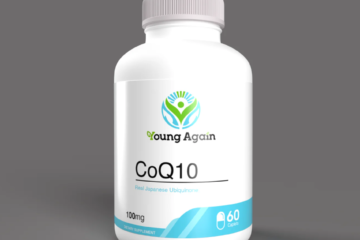Strawberry Benefits For Men’s Health

Men's Health
Strawberries are a source of several nutrients and antioxidants. These include Vitamin C, folic acid, and manganese.
Buy VIdalista 40 that can help lower blood pressure in men and keep it healthy. They are also a great source of fiber, which can contribute to weight loss.
Vitamin C
Vitamin C is an important nutrient that helps support healthy immune function, bone health and skin. It also has antioxidant properties that help protect the body from free radical damage, which can contribute to chronic diseases such as heart disease and cancer.
Strawberries are rich in vitamin C, which can boost your immune system by boosting white blood cell activity and fighting infection. It can also help prevent the development of allergies and improve your overall health.
Aside from boosting your immune system, vitamin C is also known to reduce inflammation in the body. It can also help control cholesterol levels and regulate your blood pressure.
This nutrient can be found in many fruits and vegetables, including citrus fruits, broccoli, kale, strawberries and green peppers. You can also take a vitamin C supplement to help you meet your daily needs, but talk with your healthcare professional before starting any new dietary supplements.
Besides being a powerful antioxidant, vitamin C can also support the growth of beneficial bacteria in the gut. This can help with digestion, weight loss and overall health.
In addition to the antioxidant effects of vitamin C, it can also prevent high blood pressure and gallbladder disease. It can also help with cancer and reduce the risk of atherosclerosis, a build-up of plaque in your arteries that can lead to heart attack or stroke.
Another benefit of vitamin C is that it has a strong anti-inflammatory effect on the body, which can help reduce the symptoms of arthritis and gout. It can also lower your blood pressure by relaxing the walls of your blood vessels and helping to regulate it.
Strawberries also contain anthocyanins, which are antioxidants that have a direct effect on the lining of the blood vessels and help protect against cardiovascular disease. They are also a good source of potassium, which can help maintain healthy blood pressure.
Vitamin C also has a role in the production of collagen, which is essential for building and repairing muscles, bones, ligaments, and tendons. It can also promote hair growth, reducing the chances of developing split ends.
Folic Acid
Folic acid is a B-vitamin that plays an important role in the production of red blood cells, as well as DNA and RNA. It’s also essential for preventing birth defects.
Women who are trying to conceive need to make sure they get enough folic acid to reduce their risk of giving birth to babies with neural tube defects (NTDs) such as spina bifida and anencephaly. It is also vital for healthy brain and nervous system development during the early stages of pregnancy.
The dietary sources of folate include foods fortified with it, such as cereals and breads. It is also found in certain dietary supplements.
For women, folic acid is necessary during the first trimester of pregnancy to prevent birth defects. It’s also recommended for men who want to conceive, as it can help increase the quality of their sperm.
Men can benefit from eating a diet rich in folic acid, either through fortified foods or supplements. If you’re not sure how much folic acid you need, talk to your doctor.
It’s best to start with a multivitamin fortified with folic acid or a daily supplement that contains 400 to 1,000 mcg of folic acid. If you have a history of autism or developmental delays in your family, your doctor may recommend higher amounts, but not more than 2,000 mcg a day.
Moreover, people with depression can benefit from taking a folic acid supplement alongside their antidepressants. This is because people who have depression tend to have lower levels of folic acid than those who do not. Hence, by taking folic acid, they can improve their mood and feel better overall.
In addition to being beneficial for mental health, folic acid can improve cardiovascular health. It helps maintain a healthy heart by reducing LDL, or “bad,” cholesterol and inflammation. It can also help keep the blood vessels in your heart healthy by helping to regulate high blood pressure and lowering the risk of heart disease.
It can also aid in the synthesis of new hair cells, which is another one of its benefits for men. Because folate supports cell growth, it can reduce premature greying of hair and promote fast hair growth. It can also aid in the treatment of excessive hair loss, which is another common concern for many men.

Men’s Health
Antioxidants
Strawberries are rich in antioxidants. The Vidalista 80 mg Yellow may help reduce your risk of cancer, heart disease, and other health conditions. They are also a great source of vitamin C, a powerful immune-boosting nutrient that helps prevent cellular damage and improves skin health.
Antioxidants are compounds that help the body fight against free radicals that can lead to a variety of chronic diseases and conditions, including heart disease, Alzheimer’s, cancer and cataracts. Among the most effective of these are vitamins C and E, as well as the minerals selenium and manganese.
A healthy diet with plenty of antioxidant-rich fruits and vegetables has been linked to lower rates of heart disease, cancer and age-related macular degeneration. For example, one study found that men who consumed high amounts of lycopene, an antioxidant found in tomatoes, apricots and watermelon, were less likely to develop prostate cancer than those who didn’t consume enough of the nutrient.
Another important nutrient is potassium, which supports heart health by helping to regulate blood pressure. According to the Centers for Disease Control and Prevention (CDC), a higher intake of potassium has been associated with a lower risk of stroke, heart attack and cardiovascular disease.
Additionally, strawberries are an excellent source of dietary fiber, which is an important digestive aid that improves digestion, promotes regularity and helps maintain a healthy weight by keeping your gut healthy and functioning properly. In addition, the soluble and insoluble fiber in strawberries can help you feel full faster so you’ll eat less.
Finally, they’re a good source of prebiotics, which promote the growth of beneficial bacteria in the gut. This is especially helpful if you’re experiencing gastrointestinal issues such as constipation, irritable bowel syndrome or diarrhea.
Lastly, strawberries are rich in phytochemicals, which are natural plant chemicals that promote health. These compounds are known to have protective effects on many organs and systems, including the brain, eyes and skin.
For the best benefits, it’s important to eat fresh strawberries as often as possible. But if you can’t get to the market in time, dried or frozen strawberries are also a tasty option.
Manganese
Manganese is a mineral that helps maintain healthy bones, boost metabolism, and regulate blood sugar levels. It is also a vital part of the body’s immune system and energy production process.
Intakes of this nutrient can be increased by eating whole grains, legumes, nuts, and leafy vegetables. However, some foods may slightly inhibit the absorption of this mineral. This includes foods high in phytates and oxalic acid, as well as certain teas. It’s important to consume a wide variety of nutrients from all food groups and to limit foods higher in saturated fat, added sugar, and sodium.
A diet rich in manganese may prevent osteoporosis, improve energy metabolism, and promote male fertility. It can also help control blood sugar levels and protect the nervous system. It can reduce stress and anxiety, and decrease the risk of developing depression.
It can lower blood pressure and prevent inflammation. It may also help with pain and stiffness in the joints. It is also a cofactor for superoxide dismutase (SOD), which fights oxidative stress and inflammation in the body.
The Recommended Dietary Allowance (RDA) for this nutrient is 2.3 milligrams of manganese per day for men and 1.8 mg of manganese per day for women. This intake is considered adequate to prevent deficiency and is likely to promote optimum health, according to the Linus Pauling Institute.
Because it is a trace element, manganese can be overdosed if ingested in excess of the RDA, and there have been isolated case reports of toxicity. The best way to avoid overdose is by following a healthy diet with plenty of fruits, vegetables, whole grains, and other sources of manganese.
If you’re planning to take a manganese supplement, be sure to consult with your doctor. This is especially true if you’re pregnant or breastfeeding.
In addition, you should consider the amount of other minerals you are taking. For example, if you’re on a medication that contains iron, calcium, or phosphorus, these minerals may interfere with the absorption of manganese. It’s also a good idea to drink plenty of water when you are taking supplements so that other minerals can help remove excess manganese from the body










